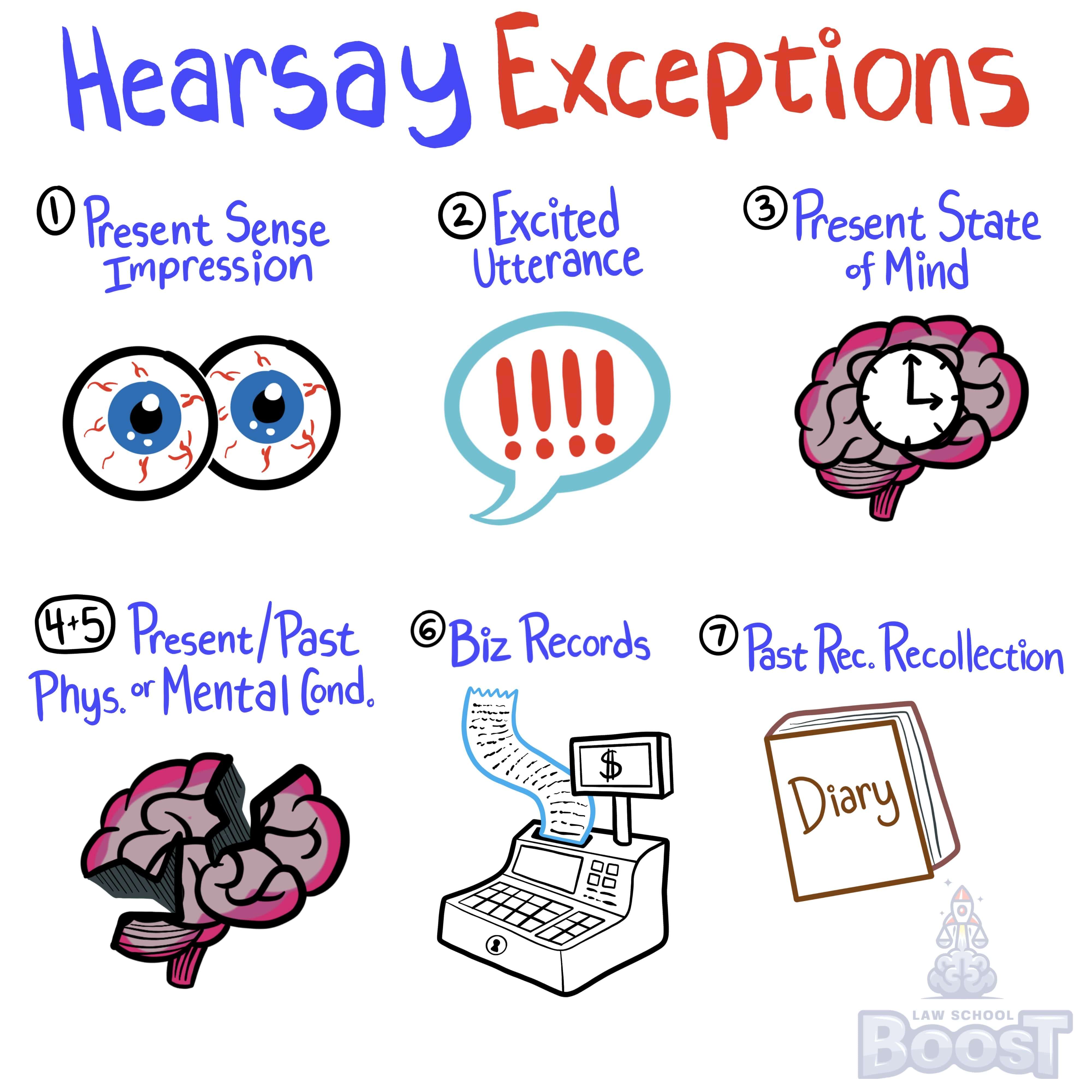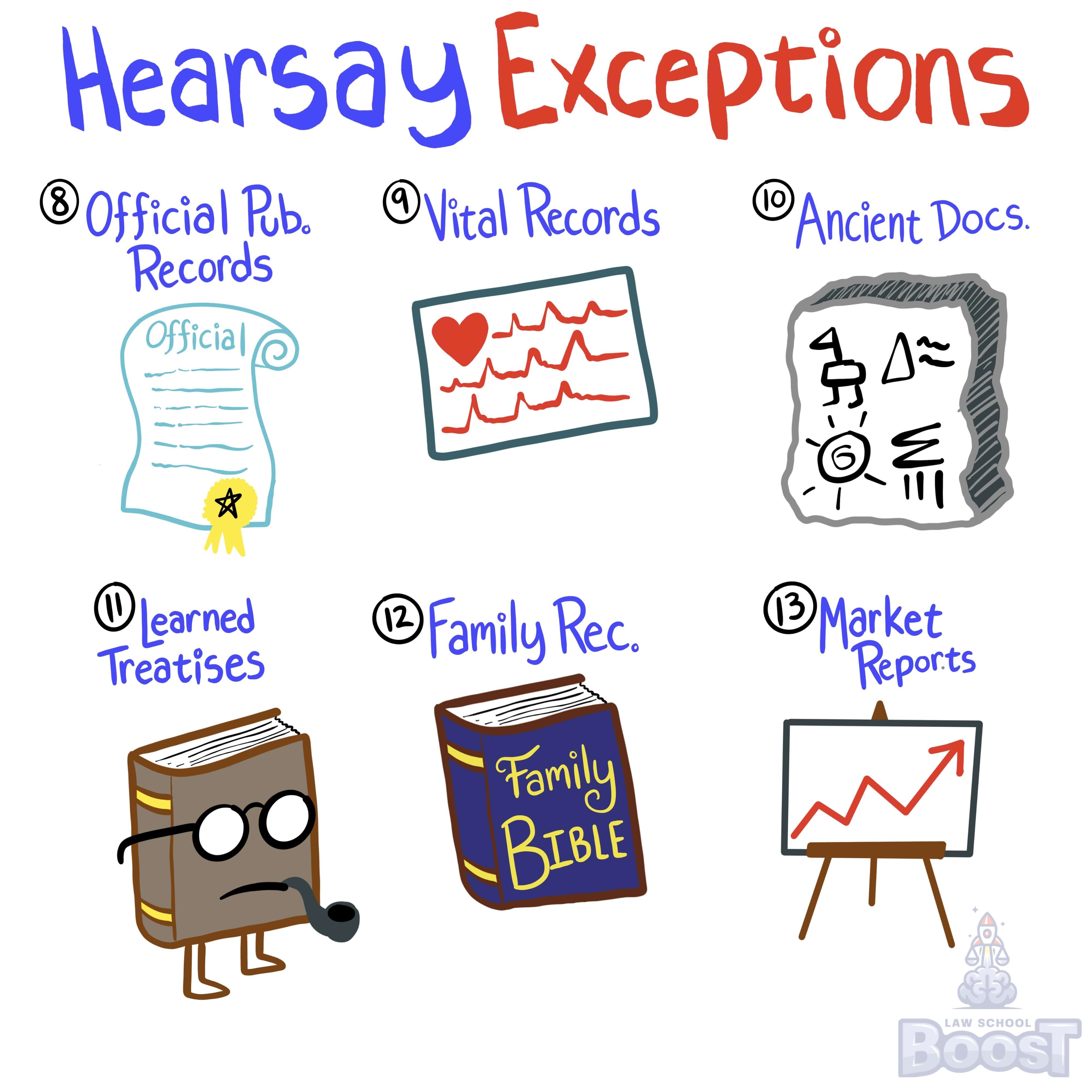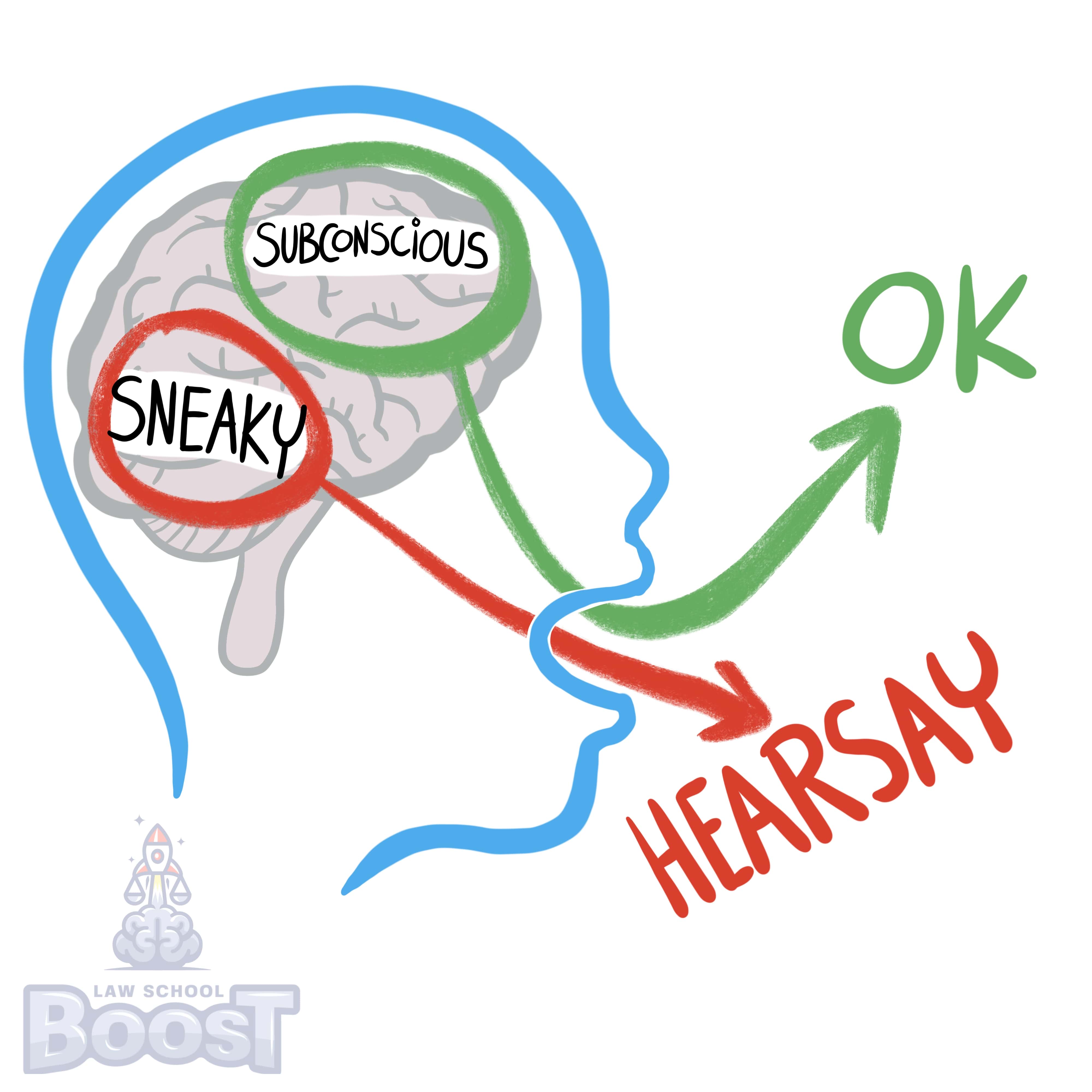🦅
Federal Evidence • Hearsay Exceptions - Unavailability Required
EVID#033
Legal Definition
The former testimony hearsay exception applies to testimony made under oath in earlier proceedings or depositions by a now-unavailable witness, which is offered against a party or predecessor in interest in a civil case who had an opportunity and similar motive to cross-examine the witness. The witness must now be unavailable.
Plain English Explanation
The former testimony hearsay exception applies to testimony given under oath in earlier proceedings or depositions by a now-unavailable witness. This exception allows the testimony to be offered against a party (or, in civil cases, a predecessor in interest) who had an opportunity and similar motive to cross-examine the witness during the prior testimony. The witness must now be unavailable for the former testimony to be admissible.
The purpose of this rule is to ensure that relevant testimony given under oath is not lost simply because the witness is now unavailable. For example, if a witness testified at a murder trial that they saw the defendant leave the victim's house on the night of the murder, and the witness dies before the appeal, their earlier testimony should still be admissible. This prevents the necessity of disregarding their statement, even though it was given under oath.
However, it is essential that the party now facing this prior testimony had a fair opportunity to question the witness when it was originally given. This means that if the prosecution's main witness testifies at a preliminary hearing, the defense must have the ability to cross-examine them at that time. This ensures that if the witness becomes unavailable for trial, the defense has already had the chance to challenge their testimony through questioning.
The purpose of this rule is to ensure that relevant testimony given under oath is not lost simply because the witness is now unavailable. For example, if a witness testified at a murder trial that they saw the defendant leave the victim's house on the night of the murder, and the witness dies before the appeal, their earlier testimony should still be admissible. This prevents the necessity of disregarding their statement, even though it was given under oath.
However, it is essential that the party now facing this prior testimony had a fair opportunity to question the witness when it was originally given. This means that if the prosecution's main witness testifies at a preliminary hearing, the defense must have the ability to cross-examine them at that time. This ensures that if the witness becomes unavailable for trial, the defense has already had the chance to challenge their testimony through questioning.
Hypothetical
Hypo 1: Bob is on trial for murder. At his trial, a witness named Amy testifies that she saw Bob covered in blood leaving the victim's apartment on the night of the murder. Bob's attorney cross-examines Amy. Bob is convicted. Bob appeals his conviction. Before the appeal, Amy dies in a car accident. Result: At Bob's appeal, the prosecution can introduce the transcript of Amy's trial testimony under the former testimony exception to hearsay. Amy is unavailable because she passed away. And Bob had the opportunity to cross-examine her when she originally testified at trial. Her testimony is admissible even though she is no longer available as a witness.
Hypo 2: Sam sues Bob for breach of contract. Bob counterclaims that the contract is invalid due to fraud in the inducement. In a pretrial deposition, Sam's brother Bert testifies that he was present when the contract was signed and he did not witness Bob make any false statements to Sam. At trial, Bert is in the hospital in a coma after a serious accident. Result: Bert's deposition testimony can be admitted under the former testimony exception. Depositions are taken under oath. Bob's attorney had the opportunity to cross-examine Bert at the deposition. And Bert is now unavailable due to being in a coma. His deposition testimony is admissible hearsay at the trial.
Hypo 3: Amy files a police report accusing Bob of assault. At a preliminary hearing, Bob has the chance to cross-examine Amy about her allegations. Amy then moves to Europe and cannot be located to testify at Bob's criminal trial. Result: Amy's preliminary hearing testimony can be introduced at Bob's trial under this exception. The testimony was under oath, Bob had the opportunity to cross-examine her at the hearing, and she is now unavailable as a witness because she cannot be located. The former testimony can be admitted at trial.
Hypo 2: Sam sues Bob for breach of contract. Bob counterclaims that the contract is invalid due to fraud in the inducement. In a pretrial deposition, Sam's brother Bert testifies that he was present when the contract was signed and he did not witness Bob make any false statements to Sam. At trial, Bert is in the hospital in a coma after a serious accident. Result: Bert's deposition testimony can be admitted under the former testimony exception. Depositions are taken under oath. Bob's attorney had the opportunity to cross-examine Bert at the deposition. And Bert is now unavailable due to being in a coma. His deposition testimony is admissible hearsay at the trial.
Hypo 3: Amy files a police report accusing Bob of assault. At a preliminary hearing, Bob has the chance to cross-examine Amy about her allegations. Amy then moves to Europe and cannot be located to testify at Bob's criminal trial. Result: Amy's preliminary hearing testimony can be introduced at Bob's trial under this exception. The testimony was under oath, Bob had the opportunity to cross-examine her at the hearing, and she is now unavailable as a witness because she cannot be located. The former testimony can be admitted at trial.
Visual Aids



Related Concepts
Does California recognize the statement of personal or family history hearsay exception?
How does the dying declaration hearsay exception differ in California?
How does the former testimony hearsay exception differ in California?
How does the statement against interest hearsay exception differ in California?
How does the statement offered against party procuring declarant's unavailability hearsay exception differ in California?
In California, what is the past physical condition or statement of mind (where at issue in the case) hearsay exception, and does it require the witness to be available?
In California, what is the statement describing infliction—or threat—of physical injury hearsay exception, and does it require the witness to be available? This is sometimes called the "OJ Exception."
What is the dying declaration hearsay exception, and does it require the witness to be available?
What is the statement against interest hearsay exception, and does it require the witness to be available?
What is the statement offered against party procuring declarant's unavailability hearsay exception, and does it require the witness to be available?
What is the statement of personal or family history hearsay exception, and does it require the witness to be available?


